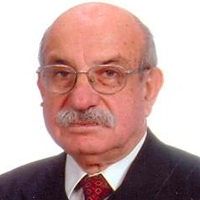Authors Columns of the Day Sport Guest Life All Authors
Foreign capital is a dead weight
One such example of insanity is the obsession with solving economic problems through the inflow of foreign capital.
During World War II, Turkiye was able to make limited imports, accumulating gold reserves as a means of payment through a trade surplus, particularly by exporting minerals like chrome. When the Democratic Party (DP) came to power, it used these gold reserves to create an artificial abundance through imports, giving an illusion of success. However, this artificial abundance did not last long, especially with the Bretton Woods system in place, which fixed the exchange rate of one U.S. dollar at 2.82 lira. By mid-1952, problems began to surface and grow. The DP, expecting to solve these issues with the enactment of the Foreign Capital Incentive Law (Law No. 5224) and the petroleum law in 1954, eventually had to implement the 1958 stabilization program.
Foreign capital can enter from various sources: (i) direct foreign investment, (ii) the transfer of tangible, real assets, (iii) the transfer of financial assets, (iv) borrowing, increasing claims by foreign residents, and (v) donations, aid, or the assets brought by those returning from abroad.
Direct foreign investment involves cash capital or machinery and equipment brought from abroad to establish new facilities, expand the production capacity of existing facilities, or modernize and operationalize them.
The most visible burden of foreign capital investment is the outflow of more resources through profit and capital transfers than what is brought in. In reality, the costs and drawbacks are much greater than they appear. If a portion of the inputs are sourced from abroad, it engages in transfer pricing, effectively transferring profits covertly. By abusing its dominant market position, it can exclude domestic, especially small firms, preventing their re-entry and limiting competition through price leadership. Historically, as observed during the Ottoman period, it also serves as a political pressure tool to protect the interests of its home country.
The social costs of foreign capital in mining are significantly higher. Mining operations, by principle, are public services, with the country's natural wealth and resources under the state's control. However, with the mining law enacted during Özal's era in 1985, foreign capital can obtain mining licenses for up to 60 years. Without necessary protective measures and treatment facilities, mining causes environmental destruction, pollution, soil infertility, and leaves behind waste piles, resulting in high social costs. To deceive and persuade, there is talk of gold extraction. Using cyanide for gold extraction creates health issues, leading to higher social costs for the country. If gold extraction could make a country rich, South Africa would be the richest in the world. Instead, the cost to the country has been widespread poverty, with natural beauty replaced by waste piles and artificial hills.
Selling the country's tangible assets and facilities to foreigners does not create added value or expand production capacity; it merely changes ownership.
The influx of hot money is encouraged with high interest rates and low exchange rates. Despite being termed portfolio investments, hot money exits the country rapidly when expectations change or higher returns are seen elsewhere, creating high costs and instability.
Despite no example of a country solving its problems and developing solely through foreign debt, the rhetoric of foreign capital inflow persists, offering no real solutions and merely delaying the inevitable.

